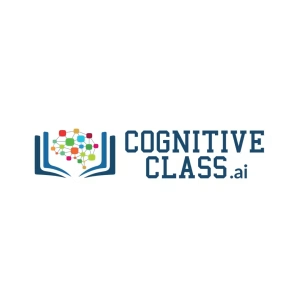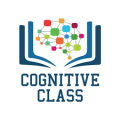- All
- Favorite
- Popular
- Most rated

Consuming a RESTful Java web service with Angular
Gain the skills to consume RESTful Java web services with Angular. Learn how to integrate backend Java services with Angular front-end applications, providing seamless data exchange and enhancing user interface interactivity for modern web solutions.

Learn how to use Docker containers for iterative development
Discover how to use Docker containers for iterative development. Learn how to create development environments that can be easily spun up, tested, and modified, making your workflow faster, more efficient, and collaborative with Docker-based containers.

Building a multi-module enterprise Java application with Maven and Open Liberty
Learn how to build and manage a multi-module enterprise Java application with Maven and Open Liberty. Explore how to structure large-scale applications using Maven for dependency management and Open Liberty for deployment, ensuring modular, maintainable code.

Consuming a RESTful Java web service with ReactJS
Master the skills to consume RESTful Java web services using ReactJS. Learn how to fetch and display data from Java-based back-end services in real-time on dynamic React applications, enhancing user experiences in modern web development.

Containerizing, packaging, and running a Spring Boot app
Master the art of containerizing, packaging, and running Spring Boot applications in Docker. Learn how to streamline deployment, manage microservices, and ensure your Spring Boot app runs seamlessly in containers for production environments.

Consuming a RESTful Java web service using JSON-B and JSON-P
Learn how to consume RESTful Java web services using JSON-B and JSON-P. Discover the power of Java APIs for processing JSON data, enabling seamless communication between web services and front-end applications through effective data parsing and binding.

Building and testing a Java web application with Maven and Open Liberty
Build and test Java web applications using Maven and Open Liberty. Learn to use Maven for project management and Open Liberty as a lightweight Java EE server to create scalable, enterprise-ready applications in a modern development environment.

Containerizing and running Java microservices in Docker cont
Learn how to containerize Java microservices using Docker. Discover how to build, package, and run your Java applications in isolated containers to simplify development, deployment, and scalability in microservices architectures.

Shell Scripting for Beginners
Dive into shell scripting for beginners and automate repetitive tasks on Linux and Unix-based systems. Learn how to write scripts to control system processes, manage files, and perform complex operations without needing extensive programming knowledge.

Getting started with Linux Terminal Commands
Start your journey with Linux terminal commands. Learn essential command-line tools and techniques to navigate, manipulate files, and manage system resources efficiently on Linux-based operating systems.

Robots are coming! Build IoT apps with Watson, Swift, and Node-RED
Learn how to build IoT applications by integrating Watson, Swift, and Node-RED. Explore the world of robotics and IoT, and discover how to create smart, connected applications for the future using cutting-edge tools and technologies.

Hands-on Introduction to Linux Commands and Shell Scripting
Gain practical experience with Linux commands and shell scripting in this hands-on course. Learn the basics of navigating the Linux terminal, performing file operations, and automating tasks with shell scripts to enhance your productivity.

Create confusion matrices and compute metrics with Python
Understand how to create confusion matrices and compute essential model metrics in Python. Learn to evaluate classification models with metrics like accuracy, precision, recall, F1-score, and ROC-AUC to gauge their performance.

Deploy Neural Network Regularizers to Prevent Overfitting
Learn how to deploy neural network regularizers like dropout and L2 regularization to prevent overfitting in your models. Understand how regularization techniques improve model generalization, ensuring better performance on unseen data.

Learn to automate feature selection with lasso regression
Automate feature selection in your machine learning models using Lasso Regression. Learn how to use Lasso for both regression and feature selection to create more efficient and accurate predictive models by eliminating irrelevant features.

Group your data: Clustering using Python and scikit-learn
Learn how to cluster data using Python and Scikit-learn. Understand how unsupervised learning algorithms like KMeans, DBSCAN, and hierarchical clustering can be used to find patterns and group similar data points in a variety of datasets.

Data classification with Naive Bayes
Master data classification using Naive Bayes, a simple yet powerful probabilistic algorithm. Learn how to apply it to various datasets for tasks like spam detection, sentiment analysis, and classification of categorical data.

Efficient models: reduce dimensionality with LDA in Python
Learn how to reduce dimensionality and improve model efficiency using Linear Discriminant Analysis (LDA) in Python. Discover how LDA helps with classification problems by maximizing class separability while reducing noise in high-dimensional data.

Reveal House Sale Price Secrets Using Machine Learning
Unlock the secrets to predicting house sale prices using machine learning techniques. Learn how to apply regression models and feature engineering to analyze factors influencing property prices and build accurate predictive models.

Using PCA to reduce dimensionality
Master Principal Component Analysis (PCA) to reduce dimensionality in high-dimensional datasets. Learn how to transform and visualize data, uncover hidden patterns, and improve the performance of machine learning models.

Predict payment defaults using SVM with Python
Learn how to predict payment defaults using Support Vector Machines (SVM) in Python. Understand how to preprocess financial data, train SVM models, and assess their effectiveness in predicting customer behavior in the finance industry.

Find your Best Bottle of Wine with NLP
Discover how to recommend the best bottle of wine using Natural Language Processing (NLP). Learn to analyze customer reviews, wine descriptions, and preferences to build a personalized recommendation engine with Python.

Machine Learning Explainability
Understand the importance of machine learning explainability. Learn to interpret and explain complex ML models using techniques like SHAP, LIME, and other methods to ensure transparency and trust in AI predictions.

Forecasting Crypto Portfolios Like a Quant
Learn how to forecast cryptocurrency portfolio performance using advanced quantitative methods. Apply machine learning techniques to model crypto market behavior, optimize portfolios, and predict future returns with Python.
Comprehensive Guide to Cognitive Class
Overview of Cognitive Class: Cognitive Class, originally known as Big Data University, is an online platform renowned for delivering high-quality education in data science, AI, and other technology fields. This guide explores the key features, benefits, and impact of Cognitive Class, emphasizing how it empowers learners to gain valuable skills and advance their careers.Introduction to Cognitive Class
- What is a Cognitive Class? Cognitive Class is an educational platform offering a wide array of courses in data science, artificial intelligence (AI), and technology-related topics. Developed by IBM, it provides free access to resources aimed at helping individuals gain expertise in areas such as data analytics, machine learning, and cloud computing.
- Mission and Vision: Cognitive Class is dedicated to democratizing education by making advanced technological training accessible to everyone. The platform’s mission is to equip learners with the necessary skills and knowledge to thrive in the tech industry, thereby fostering a community of professionals capable of driving innovation and solving complex problems using data and AI.
Key Features of Cognitive Class
- Extensive Course Catalog: Cognitive Class offers a broad range of courses covering topics like data science, machine learning, AI, and cloud computing. These courses are designed to impart in-depth knowledge and practical skills, catering to learners at all levels, from beginners to advanced users.
- IBM-Developed Content: All courses on Cognitive Class are developed by IBM, leveraging the company's extensive industry expertise. This ensures that the content is not only relevant but also aligned with current industry standards, providing learners with high-quality instruction and practical insights.
- Free Access and Certification: Cognitive Class stands out by offering free access to its courses, making it an excellent option for individuals looking to enhance their skills without financial constraints. Additionally, learners can earn certifications upon completing courses, which can help validate their skills and improve career prospects.
Benefits of Using Cognitive Class
- High-Quality, Expert-Led Training: Courses on Cognitive Class are led by industry experts from IBM, ensuring that learners receive high-quality instruction grounded in extensive real-world experience. This expert-led approach equips learners with both theoretical knowledge and practical skills necessary for tackling real-world challenges.
- Accessible Education for All: By offering free access to its courses, Cognitive Class makes advanced technological education accessible to a global audience. This inclusivity helps bridge the gap in tech education and supports the development of a diverse and skilled talent pool.
- Career Enhancement and Development: Cognitive Class’s certification programs offer a significant boost to learners' resumes. By earning certifications, learners can validate their expertise, making them more attractive to employers and opening doors to new career opportunities in data science, machine learning, and AI.
Cognitive Class for Individuals and Organizations
- Skill Development and Mastery for Individuals: For individual learners, Cognitive Class provides an opportunity to develop and refine skills in data science, AI, and related technologies. The platform's courses are designed to offer practical knowledge and hands-on experience, enabling learners to apply their skills in real-world scenarios.
- Career Advancement: Cognitive Class certifications can enhance career prospects by providing recognized credentials that validate a learner’s expertise. These certifications can significantly improve job marketability and open up new career opportunities.
- Employee Training and Upskilling for Organizations: Organizations can utilize Cognitive Class to train and upskill their employees in areas such as data science, AI, and technology. The platform’s courses equip employees with valuable skills that can enhance performance and contribute to the organization’s success.
- Optimizing Data-Driven Strategies: By integrating Cognitive Class’s training into their development programs, organizations can enhance their data-driven strategies and technological capabilities, driving growth and improving overall effectiveness.
Success Stories and User Feedback
- Impact on Learners and Professionals: Cognitive Class has significantly impacted many learners and professionals by providing the skills and knowledge needed to succeed in the tech industry. Success stories highlight how individuals have leveraged the platform to advance their careers and achieve outstanding results.
- User Testimonials and Feedback: Feedback from users of Cognitive Class underscores the platform’s value and effectiveness. Testimonials frequently commend the quality of the courses, the expertise of the instructors, and the practical insights gained, reinforcing the platform’s role in delivering high-quality education.
Getting Started with Cognitive Class
- Creating an Account and Exploring Courses: Getting started with Cognitive Class is simple. Users can create a free account and explore the extensive course catalog, selecting courses that align with their learning goals. The platform’s user-friendly interface makes it easy to navigate and access educational resources.
- Choosing the Right Courses: To get the most out of Cognitive Class, learners should choose courses that match their skill level and career objectives. With topics ranging from introductory to advanced levels, users can tailor their learning experience to meet their specific needs.
- Utilizing Support and Resources: Cognitive Class offers additional support and resources to help learners succeed, including course materials, community forums, and expert guidance. Leveraging these resources can enhance the learning experience and maximize the benefits of the training.

